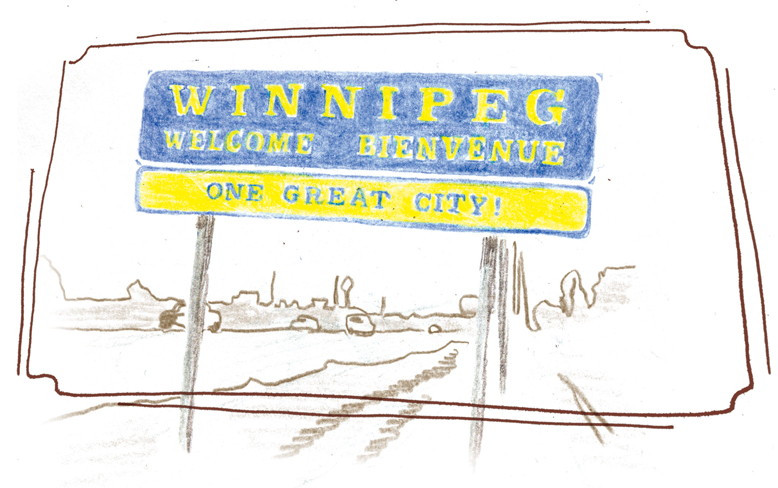One great city after all
Winnipeggers may have an inferiority complex, but there are benefits to this city
From tongue-in-cheek Simpsons references to The Weakerthans’ iconic proclamation, “I hate Winnipeg,” at times it feels as though the joke is perpetually on the residents of this city. Add this to the fact that Winnipeggers aren’t exactly quick to rush to the defence of the supposed “one great city.” Residents seem to have developed something of an inferiority complex for a place that is more akin to a prairie town than a bustling metropolis.
But this collective sense of shame may be misplaced, especially when the city is compared to rapid-growth cities like Calgary and Toronto.
“Winnipeg, as a slow-growth city, compared to places like Calgary, has weathered the recession well because we don’t have a boom economy, based on one profitable resource,” University of Winnipeg politics professor Christopher Leo said.
Leo suggested that Winnipeggers suffer from a collective inferiority complex on his blog in a post that examined our feverish desire to score an IKEA outlet.
“Winnipeg may in fact be one of the least hard-hit areas in the world when it comes to the recession,” he wrote. “So slow growth isn’t a negative thing, it’s all in how it is managed by policy makers.”
Former director of provincial planning Jacqueline East agrees with Leo that understanding the benefits of slow growth will help the city embrace its identity and stop trying to emulate other cities.
“We are sort of desperate to pull forms from other places and impose them on Winnipeg,” said East. “With rapid-growth cities, the problem now is the economy. When infrastructure is scrambling to accommodate new communities it can be hard to manage.”
She also cautioned against the boom envy Winnipeggers feel while looking at places like Alberta.
“When growth is slow, changes are incremental, whereas a big boom can also mean a big crash,” she said.
While slow growth presents its own set of challenges, East said it allows time for planning.
“We need to understand growth and development in a Winnipeg context and not always look to what is happening in places like Toronto and attempt to duplicate it. Winnipeg is very unique. There’s definitely a positivity and beauty that comes out of it. Many cities in Europe face similar slow-growth issues and there is a sense there of embracing it.”
U of W arts student Ashley Gentes has lived in Winnipeg her whole life. She said that while she definitely thinks there is an underlying sense of resistance among Winnipeggers when it comes to celebrating their home town, she wouldn’t trade it for big-city life.
“People always say how much it sucks here, but it’s also home.”
Published in Volume 64, Number 6 of The Uniter (October 8, 2009)








